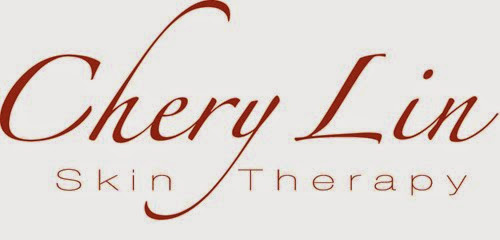Eczema, or dermatitis, can be a distressing condition for the sufferer. It causes local inflammation accompanied by scaly, itchy and sometimes cracked, sore skin. It is caused by allergies and is often associated with asthma, hay fever and rhinitis.
Eczema is commonly caused by plants (and their extractions), fabrics and metals. The most common offenders are nickel (found in jewellery), chromate (found in wet cement), epoxy resins (used as adhesives and paints) and cosmetics. It is cosmetics that are causing more eczema symptoms as products are more likely to contain fragrances, biocides (such as pesticides or antimicrobials), and preservatives and it is these which can cause symptoms where you wouldn’t expect them. For example, the hardeners used in nail varnish can cause eczema on the eyelids, face and neck rather than on the hands, and the dye used to colour hair can cause serious symptoms of eczema on the face, eyelids and ears, but not on the scalp. There are many substances that can cause the symptoms of eczema, ranging from rubber (for producing household gloves), pine extract found in sticking plasters to formaldehyde found in commercial shampoos. It can therefore be hard to pinpoint the cause or source of the eczema.
It is important to confirm the type of eczema a sufferer has as there is generally no cure, only treatment to control symptoms. There are 5 common types of eczema:
Atopic eczema
This form of eczema is thought to be hereditary. If one or both parents suffer with asthma, eczema or hay fever, the chances are their children will become atopic. The itchy rash is particularly noticeable on face and scalp, neck, inside of elbows behind knees and buttocks.
Contact dermatitis
There are two types:
i) Allergic, which develops over a period of time as a result of the immune system reacting against a substance used regularly. The offenders are usually perfume, cosmetics and costume jewellery.
ii) Irritant dermatitis effects adults on the hands, caused by detergents and chemicals used around the home or workplace.
Discoid Eczema
Affects any part of the body, but particularly the lower legs. Cause is unknown but it can start as a result of an insect bite or burn. The eczema patches are round or oval in shape, either extremely itchy or barely noticeable. Although patch testing can be arranged, there is often no specific allergy to be found.
Seborrhoeic Eczema
Commonly known as cradle cap in babies, it can affect adults also. It spreads quickly, looks quite distressing, but it is not sore or itchy. Men seem to be more susceptible, effecting mainly the 20-40 year old age group. It looks like dandruff and often spreads from the scalp to the face where it is noticeable around the eyebrows. This type of eczema is often associated with yeast growth.
Varicose Eczema
More common in women than men, this type of eczema tends to develop later in life due to poor circulation. It usually effects lower legs and ankles. Symptoms of eczema should be treated. Whilst not a dangerous condition, it can be distressing and sore for the sufferer, and if left untreated it
can get worse.
Diagnosis
You must have it diagnosed by your doctor or dermatologist. If you have atopic eczema, you can find out if you have allergies by having tests for respiratory and food allergies (not to be confused with food intolerances). It will then be a case of taking practical steps to avoid any allergens found. If you have contact or irritant dermatitis, it is important to identify the substance causing the irritation and avoid it. This can be done by avoiding all possible offenders (such as cosmetics, hair products, soap, shampoos, nickel in jewellery, glue, disinfectants) and re-introduce the use of them one by one and check which causes any symptoms. Your doctor can also arrange a patch test to identify the cause.
Treatment
I would always recommend complementary and organic treatments above conventional ones. Particularly as steroids and antibiotics do contain substances and ingredients which can end up aggravating the condition further and weaken the body’s natural defences. However, do
not hesitate to visit your doctor if you are worried or if your condition gets worse.
Recommended treatment would include the following;
• If the eczema is inflamed or has blisters, then a warm bath containing sodium bicarbonate is helpful as this helps reduce the body’s acidity levels;
• Use aromatherapy oils as part of your skincare programme. Chamomile, geranium, lavender and rose are particularly good. If the eczema is dry, you could use products with calendula extracts;
• Avoid commercial soap, shampoo, shower gels and detergents as these often contain harsh ingredients. Instead use gentle, natural cleansers;
• Reduce your stress levels. Try meditating with soothing music playing in the background;
• Do not rub or scratch the eczema as this will only make the condition worse and bleed;
• Wear clothes made from natural fibres as much as possible and ensure they are not tight fitting;
• Avoid mineral/petroleum based products as these block pores, and can cause or irritate the condition further;
• Try homeopathy treatment. Although treatment is generally constitutional, homeopathy can be used while other treatment is being sought or when itching is particularly bad. Try Sulphur 6c, Hepar sulph 6c, Arsenicum 6c, Graphites 6c. Consult a professional homeopathy practitioner for treatment and advice;
•Ensure that your cleansing and moisturising products and cosmetics are organic or at least natural based. They will help subdue the condition and symptoms and prevent any flare ups.
Showing posts with label Skin conditions. Show all posts
Showing posts with label Skin conditions. Show all posts
Friday, 12 July 2013
Subscribe to:
Posts
(
Atom
)

